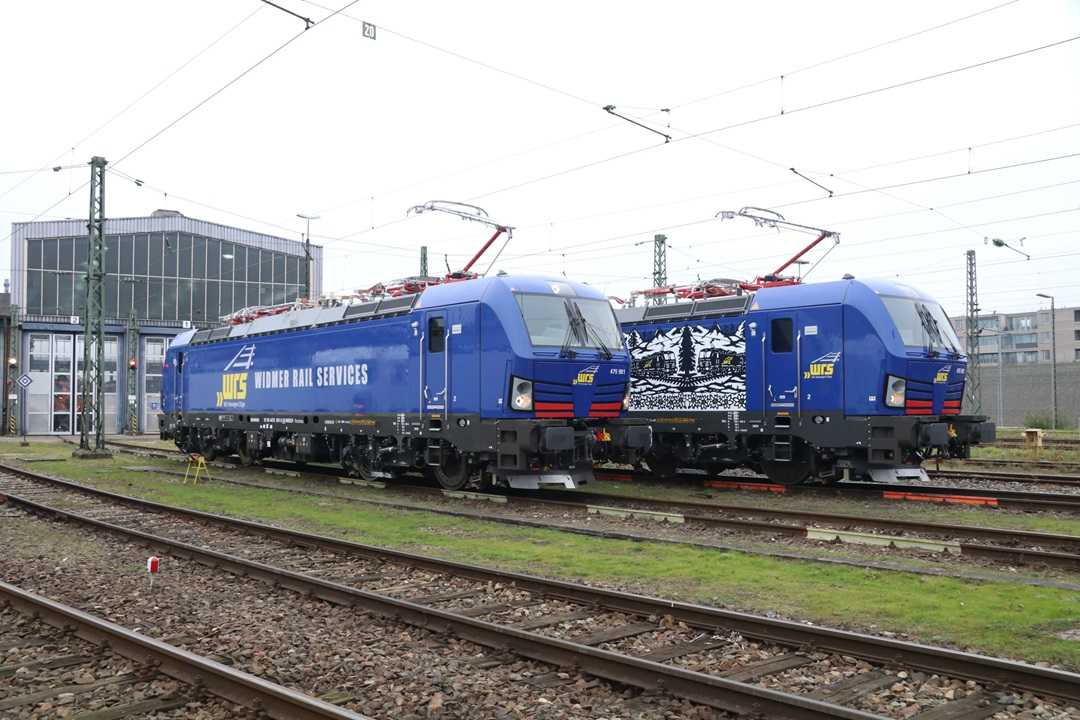The rail manufacturing facility in Munich-Allach has officially reopened following a major expansion, positioning itself as one of the most advanced train production centers in Europe. Since 2023, approximately €250 million has been invested in new infrastructure, modern manufacturing systems, and AI-powered software tools. This major upgrade reinforces the company’s dedication to maintaining and growing industrial operations in Germany.
The expansion will lead to the creation of more than 500 additional jobs, increasing the local workforce to around 2,500. With its production space now more than doubled, the facility will not only manufacture Vectron locomotives — widely used across Europe — but also begin production of Vectouro passenger cars. This marks the first time all rail vehicles based on Vectron technology will be built at a single location.
The site will also significantly increase its service capacity and become the new headquarters for Siemens Mobility. It will house departments including research, development, manufacturing, services, and administration — streamlining operations and innovation under one roof as part of a broader corporate integration strategy. Company executives emphasized how the expanded site demonstrates the continued viability of industrial production in Germany.
“In Allach, we’re proving that manufacturing can thrive here with the right technology — through automation, digital tools, and artificial intelligence,” said Roland Busch, CEO of Siemens AG. “By offering connected mobility solutions through our open digital platform, we are paving the way for the transportation systems of tomorrow.”
Michael Peter, CEO of Siemens Mobility, added: “Transforming our Munich-Allach facility into a global center of excellence reflects our focus on efficiency and innovation. We’re combining cutting-edge production tools like robotics, laser-guided systems, and digital twins to elevate the entire rail sector.”
Karl Blaim, CFO of Siemens Mobility, stated: “This site reflects the strength of German engineering. Our Vectron locomotives have covered more than 1.2 billion kilometers, and this investment helps consolidate key functions — from leadership and engineering to manufacturing and servicing — in one location, reinforcing our position as a market leader.”
The upgraded site has grown from 47,000 to over 100,000 square meters. Once fully operational, the plant will be capable of producing up to 385 locomotives and 180 passenger railcars annually. New technologies, including laser-guided installations, robotics, AI-driven quality control, and virtual modeling, will be used to increase productivity and flexibility. These tools will also allow the company to respond more quickly to market demands and raise overall efficiency.
The site’s service operations are also undergoing major enhancements. By 2026, the center will be able to perform up to 80 locomotive overhauls and accident repairs per year — tripling its current capacity.
The new service building will feature four dedicated service tracks and specialized workshops for key components like bogies and wheelsets. These upgrades aim to reduce turnaround times and improve the overall customer experience.
Additionally, the facility will now include a team of roughly 70 software and data experts supporting global customers with digital services and the Railigent X platform. This integration of physical and digital operations enhances the site’s role as a comprehensive center for train technology.
Siemens Mobility will relocate its corporate headquarters from Munich-Perlach to Munich-Allach as part of the expansion. The move will create over 500 new jobs, primarily in technical fields such as metalworking, electrical systems, and mechatronics. By 2028, the total number of employees at the site is expected to surpass 2,500, reinforcing Munich-Allach as a key industrial hub and boosting the local economy.
Based in Berlin and Munich, Siemens is a global technology firm focused on industry, infrastructure, transportation, and healthcare. The company aims to develop practical technologies that improve daily life, and it supports clients in adopting sustainable and digital solutions. In the 2024 fiscal year, Siemens generated €75.9 billion in revenue and €9.0 billion in net income, with around 312,000 employees worldwide.
Siemens Mobility, a separate entity within the company, specializes in intelligent transportation systems. With more than 175 years of history in rail technology, it continues to develop innovations in rolling stock, rail electrification, automation, and digital platforms. In fiscal year 2024, Siemens Mobility reported revenue of €11.4 billion and employed approximately 41,900 people globally.








